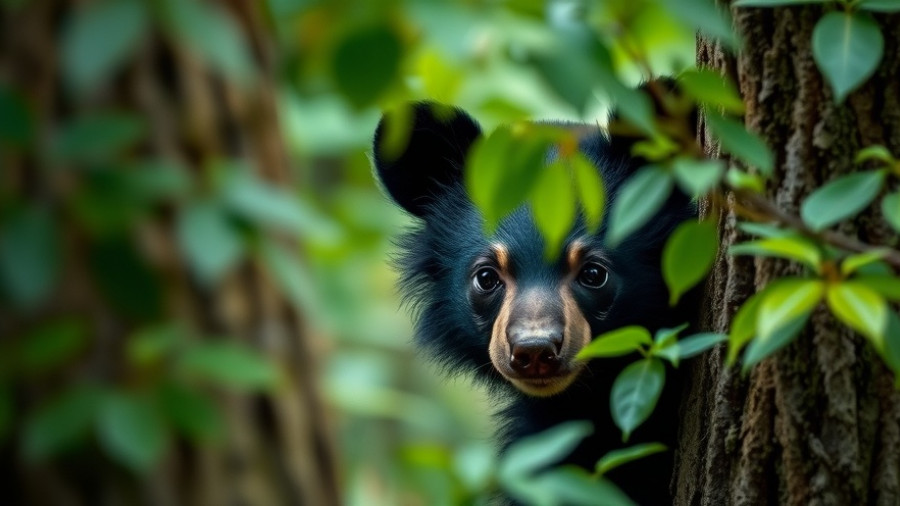
The Mighty Black Bears of North Carolina
In the heart of North Carolina's vast landscapes, an extraordinary creature roams—the black bear. These magnificent mammals are not only a symbol of the wildness that thrives in the state’s forests, but they also represent a remarkable conservation success story. Where once their numbers dwindled to alarmingly low levels in the mid-20th century, today they occupy approximately 60% of North Carolina’s total land area.
Immune to Nature's Hazards
Among the fascinating traits of black bears is their ability to munch on poison ivy—yes, you read that right! These bears, particularly the young cubs, are immune to the rash-inducing chemicals of the plant. In fact, they find the berries and leaves quite delectable, showcasing the adaptability and unique dietary habits that define them.
Adaptability: The Key to Their Survival
While wandering the forests, black bears exhibit a remarkable degree of adaptability, thriving in diverse habitats from coastal swamps to the rugged Appalachian mountains. Their omnivorous diet consists of both plants and animals, including fruits, nuts, insects, and even smaller mammals, thanks to their keen sense of smell that is seven times superior to a bloodhound’s. This versatility in feeding habits allows black bears to flourish even as their environments change.
Seasonal Behaviors and Habitat
As autumn approaches and temperatures drop, black bears engage in a habit known as hyperphagia, where their instinct drives them to consume vast amounts of food to prepare for winter hibernation. This stage is crucial for them to build sufficient body fat, enabling them to survive until spring. In North Carolina, bear dens can be found tucked away in tree cavities, rock outcrops, or dense thickets, providing safety to a resting bear.
Conservation Triumphs and Challenges
The comeback of the black bear population in North Carolina is hailed as one of wildlife management's great successes, driven by effective conservation efforts and habitat protection strategies. However, as their numbers increase, interactions with humans do as well. Residents are encouraged to take precautions to coexist peacefully with bears—securing trash, using bear-proof containers, and being bear-wise.
A Deeper Connection to Nature
Understanding and respecting black bears offers us a deeper connection to the natural beauty of North Carolina. Whether hiking in state parks, exploring historic sites, or enjoying local culinary events through the region's food and wine trails, the mighty black bear represents a symbol of the rich wildlife that can inspire tourism and local pride.
If you’re interested in witnessing these incredible creatures in their natural habitat, local attractions and outdoor activities provide the perfect opportunities to engage with North Carolina's wildlife heritage. From road trips through national forests to activities in state parks, there's an adventure waiting for everyone eager to connect with nature.
 Add Row
Add Row  Add
Add 



Write A Comment